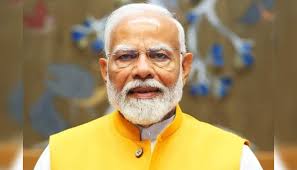
PM Modi: Just Pausing Indus Treaty Has Pakistan in Panic

 :
| Updated On: 28-May-2025 @ 2:11 pm
:
| Updated On: 28-May-2025 @ 2:11 pmSHARE
Prime Minister Narendra Modi, during an address in Gandhinagar to commemorate 20 years of Gujarat's urban development success, strongly criticized the Indus Waters Treaty (IWT) as being detrimental to India's interests. He stated that the treaty, which was signed in 1960, was “badly negotiated” and denied India access to its rightful share of water from the Indus river system, especially affecting the people in Jammu and Kashmir.
PM Modi revealed how, under the terms of the IWT, desilting and maintenance of dams in Jammu and Kashmir were not allowed. The lower gates of reservoirs, essential for clearing sediments, were required to remain shut. This restriction, enforced for over 60 years, resulted in reservoirs operating at only 2–3% of their capacity, severely limiting water usage and power generation capabilities. Modi argued that this led to long-term damage and underdevelopment in the region.
Referring to the recent decision by the Cabinet Committee on Security on April 23 to suspend the treaty, Modi explained it was not a reactionary measure following the Pahalgam terrorist attack, but rather a deliberate and strategic step. He emphasized that the treaty was only put on hold, not revoked, and even this action had already caused panic in Pakistan. By merely opening the gates to begin cleaning the dams, Modi said, “there is already a flood there,” implying the treaty disproportionately benefited Pakistan.
This was also the first time PM Modi shared detailed concerns regarding the treaty's technical limitations, especially provisions barring desilting of major hydropower projects like Baglihar and Salal dams on the Chenab River. Despite being constructed according to the IWT’s terms, India still faced restrictions that hindered their optimal functioning.
PM Modi’s remarks strongly indicate that India may seek a significant revision of the treaty. He criticized the foundational assumptions of the IWT, particularly the idea of “friendly and good neighbourly ties,” saying that Pakistan’s continuous support of terrorism had invalidated this basis. As a result, Modi suggested India could demand a renegotiation, particularly of the dispute settlement mechanism within the treaty, which is seen as biased in Pakistan’s favor.
In summary, Modi’s speech was a strong political statement aimed at redefining India’s stance on water-sharing with Pakistan under the IWT. By drawing public and international attention to the operational flaws of the treaty and linking them to national security and development, the PM laid the groundwork for potential future diplomatic moves, including a formal revision or renegotiation of the Indus Waters Treaty. His remarks also reinforced the government’s growing intent to assertively utilize India’s rightful share of resources while pressuring Pakistan on its continued sponsorship of cross-border terrorism.
Contact Us
House. No. : 163, Second Floor Haridev Rd, near Puberun Path, Hatigaon,Guwahati, Assam 781038.
E-mail : assaminkcontact@gmail.com
Contact : +91 8811887662
Enquiry
×
Reporter Login
×